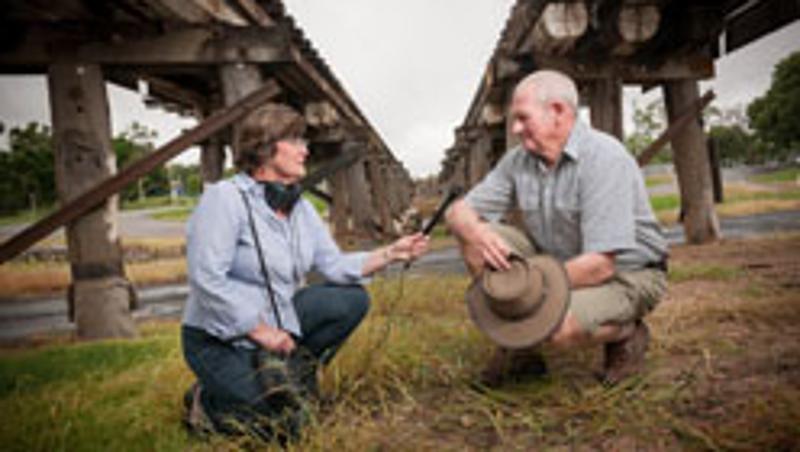
Giving trauma survivors a voice in the media can empower them to recover, new research into last year's flash floods in Toowoomba and the Lockyer Valley has found.
QUT Master of Arts (Research) student Amanda Gearing's study of flood survivors has uncovered, for what is believed to be the first time, why people share stories of loss with the media.
Mrs Gearing, an award-winning investigative journalist who lives in Toowoomba and reported on the floods for The Australian, interviewed 120 survivors from the Toowoomba and Lockyer Valley disaster that killed 21 people last year.
Their stories were recorded and published in The Torrent: Toowoomba and the Lockyer Valley January 2011, which has sold more than 1000 copies and is in its second print run since it was released in January.
"We hear a lot about journalists doing insensitive 'death knocks' but this project showed that journalism has enormous power to help people come to terms with what has happened," she said.
"Some survivors who have undertaken several months of counselling found that reading the book was more beneficial to their recovery because they were able to understand what had happened to themselves and other people during the disaster and why.
"One thing that disempowers survivors is an imposed silence. Giving survivors a voice can empower them on their road to recovery."
Mrs Gearing also wrote a masters thesis and produced an ABC Radio 360 documentary, The day that changed Grantham, as part of her research with QUT's Creative Industries Faculty.
Her research found that 10 of the 30 most traumatised survivors interviewed about why they took part in the project said they participated to help with their personal recovery.
Another nine survivors said they participated because they wanted the public to know what had happened during the disaster.
Other reasons included that survivors believed lessons needed to be learned from the floods; that warning systems and disaster responses needed to be improved; or that enough time had passed since the disaster to enable them to speak about their experiences.
Mrs Gearing said many survivors who spoke to her had lost family members, their homes and were faced with life and death situations during the floods.
However, she said many people had used the experience to make positive life changes including helping others in western Queensland who had been affected by recent flooding.
"Telling stories of survival can have a positive effect on people, empower them, emphasise their strengths and pave the way for post-traumatic growth," Mrs Gearing said.
"Of the more than 120 people I contacted for interviews, only five people weren't able to or didn't want to speak and that's perfectly understandable."
Mrs Gearing said journalists could minimise the risk of adding to survivors' trauma by adopting techniques which give interviewees respect; by listening patiently and by ensuring their reporting is accurate.
"There is a public perception that the media is very poor at dealing with bereaved people," she said.
"Reporter skills can be improved by having the reporters confront the complex issues surrounding life and death for themselves before they are asked to interview people who are traumatised or bereaved."
The Torrent: Toowoomba and the Lockyer Valley January 2011 is published by UQP and is available at bookstores. It will be released as an eBook in April.
Readers of the book can also make contact with flood survivors through the book's Facebook page.
RELATED ARTICLES:
Best and brightest emerging writers honoured
Poetry: don't think twice, it's alright
Media contact: Stephanie Harrington, media officer, 3138 1150, stephanie.harrington@qut.edu.au




